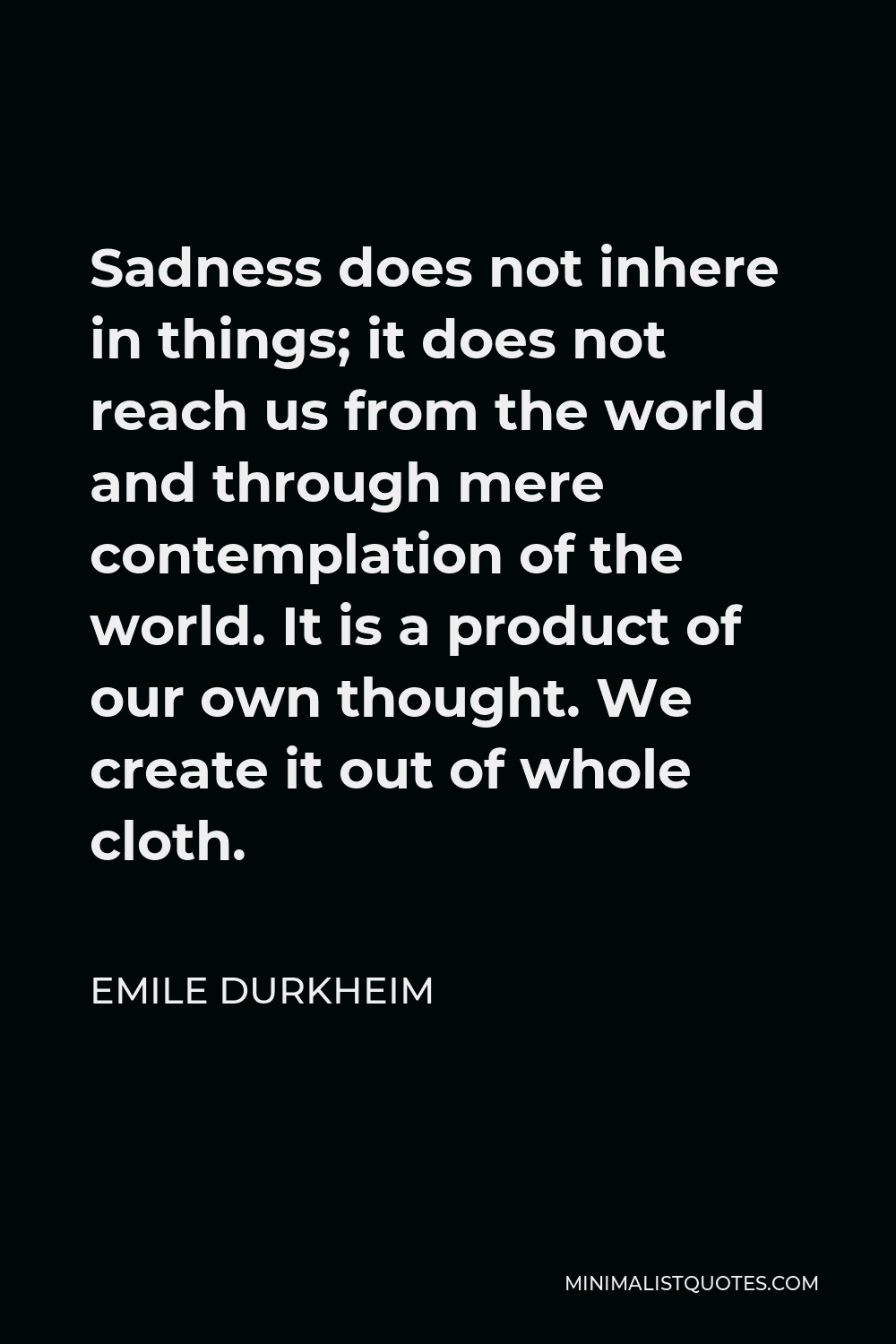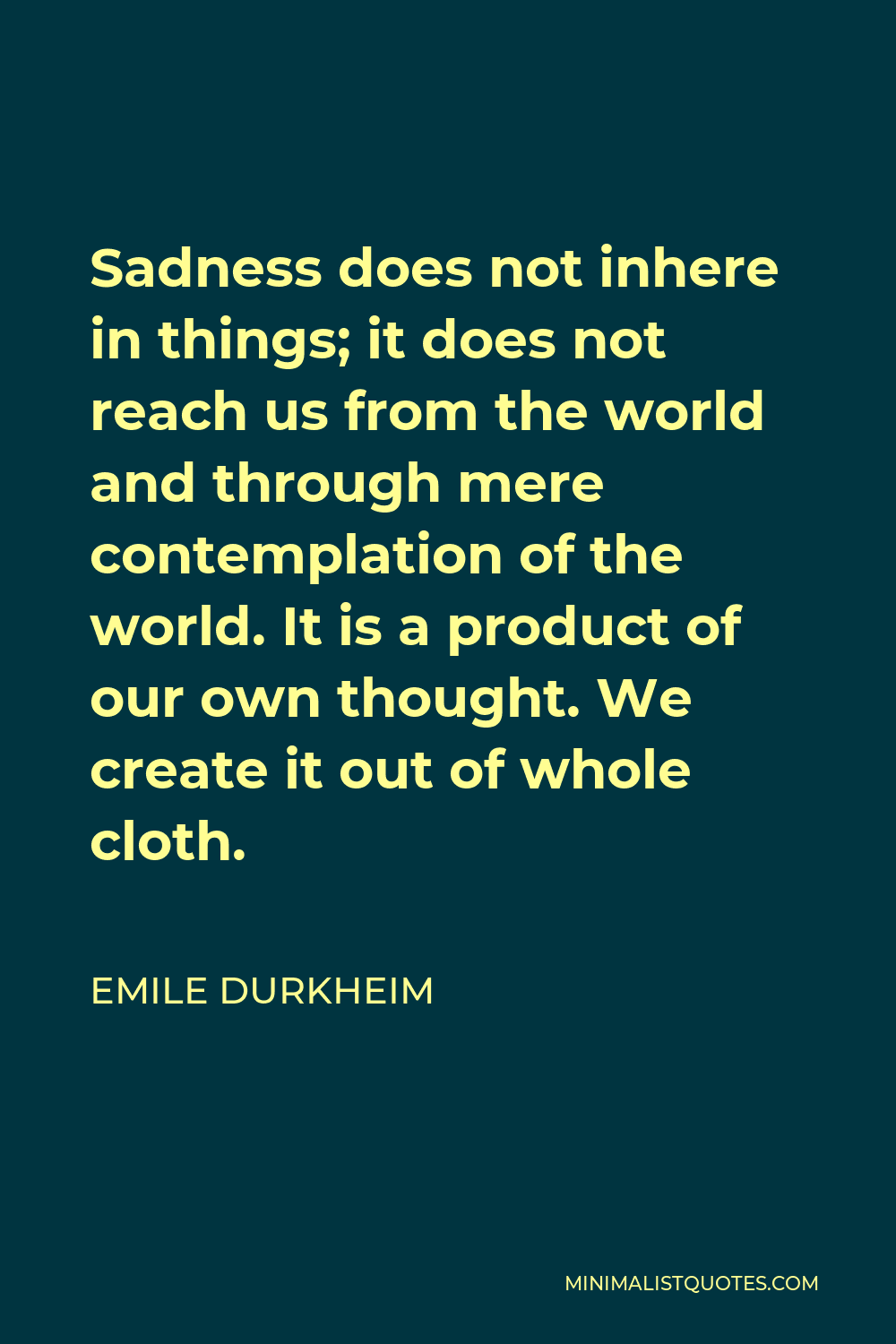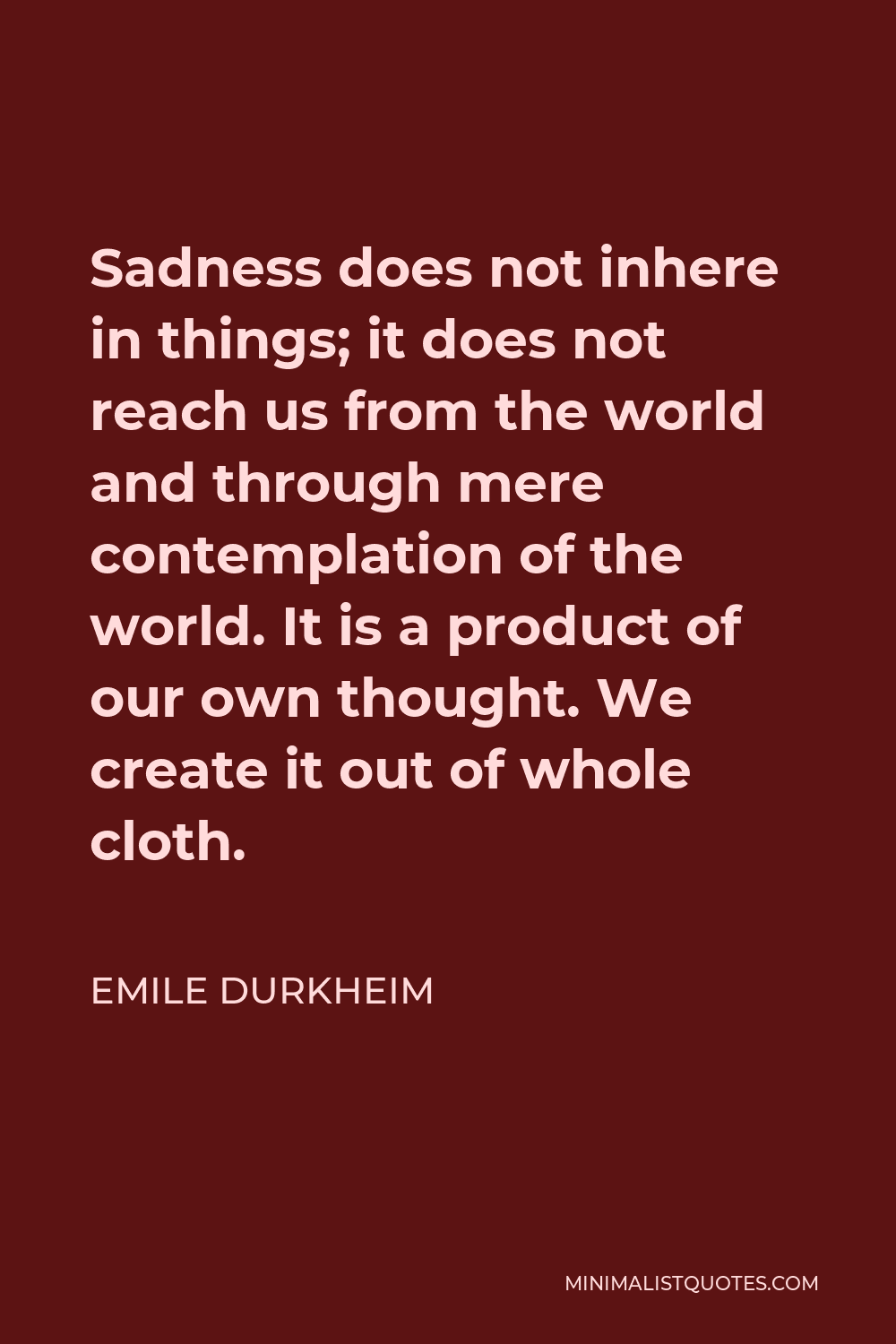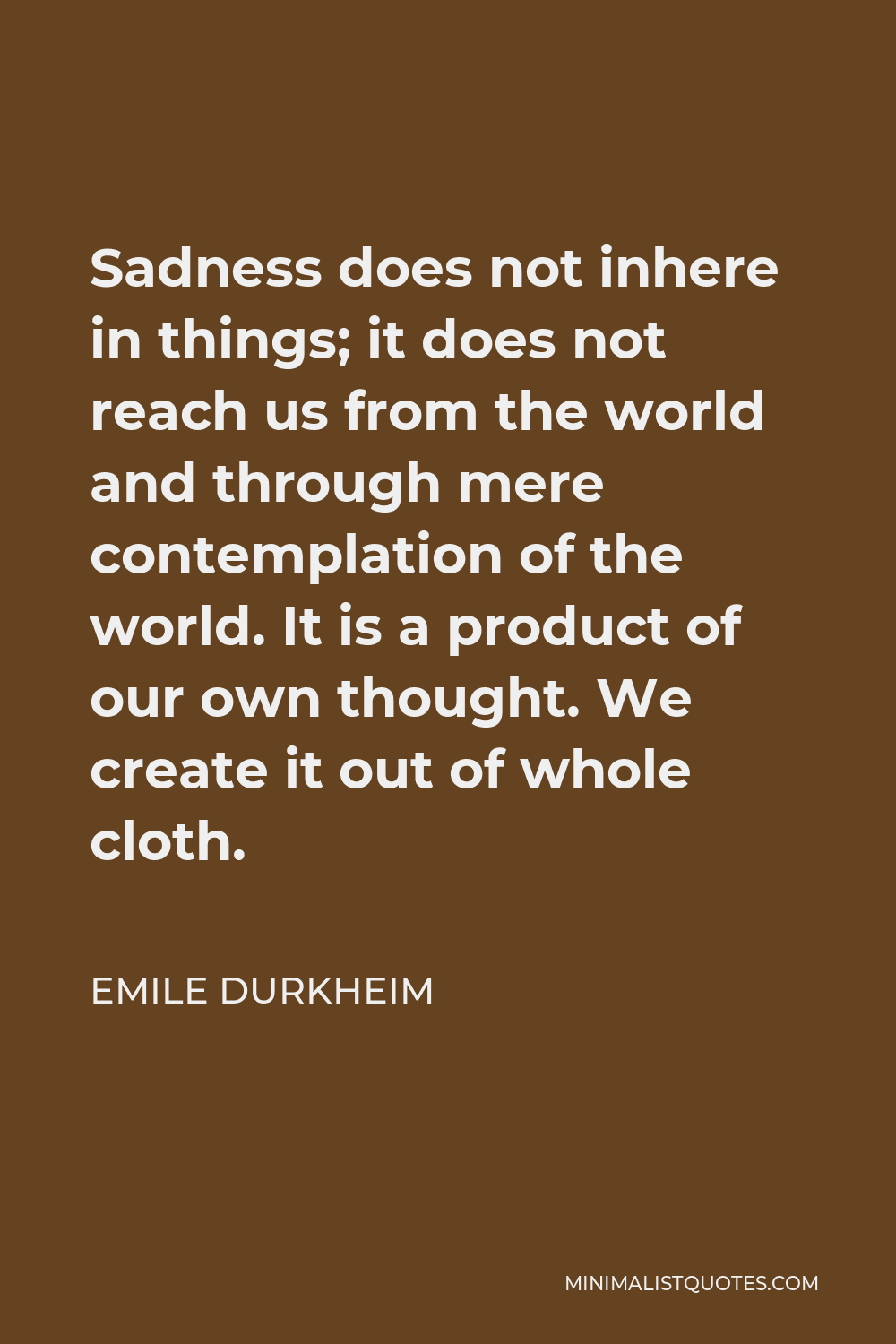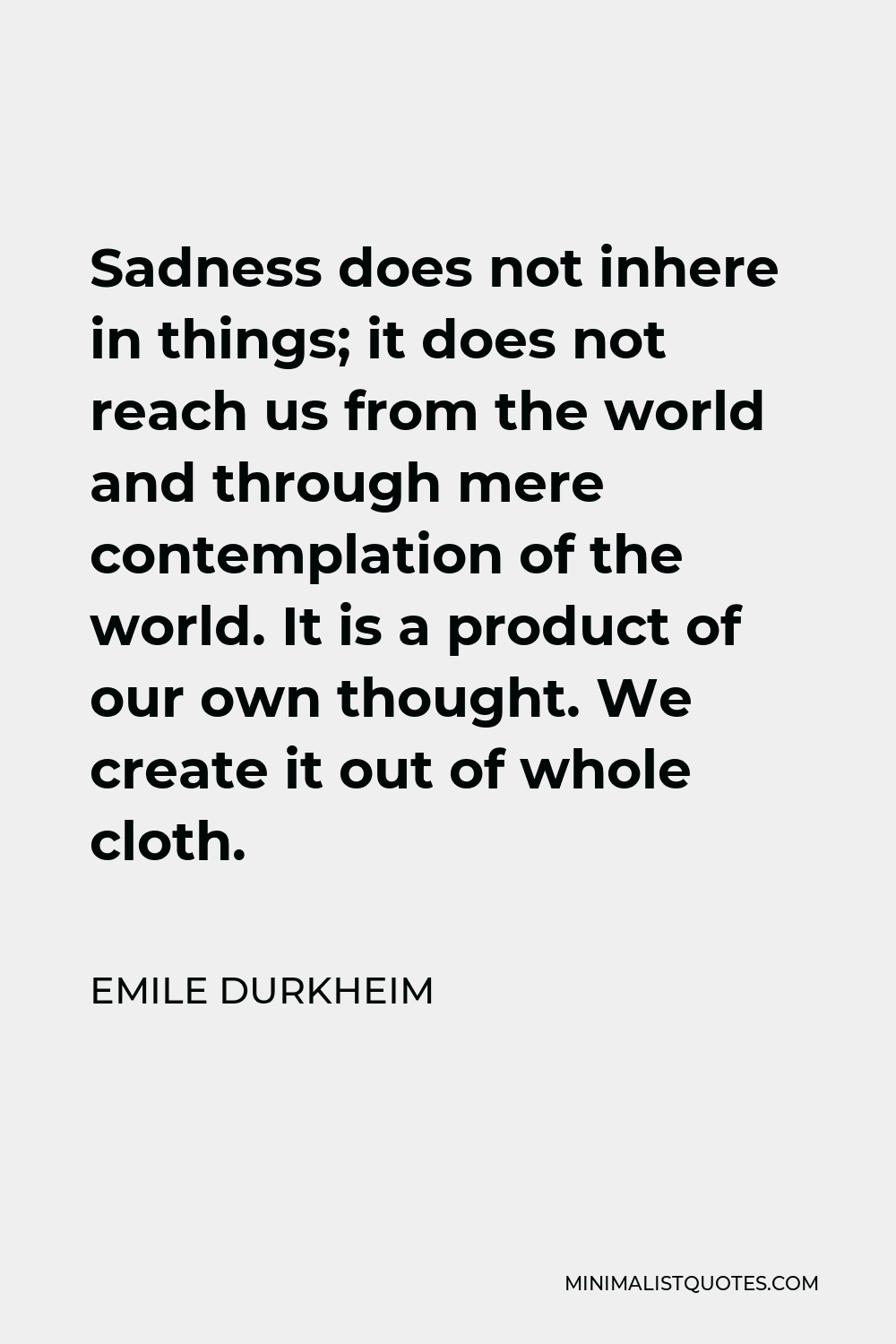A monomaniac is a sick person whose mentality is perfectly healthy in all respects but one; he has a single flaw, clearly localized. At times, for example, he has an unreasonable and absurd desire to drink or steal or use abusive language; but all his other acts and all his other thoughts are strictly correct.
EMILE DURKHEIMSadness does not inhere in things; it does not reach us from the world and through mere contemplation of the world. It is a product of our own thought. We create it out of whole cloth.
More Emile Durkheim Quotes
-







-







The term suicide is applied to all cases of death resulting directly or indirectly from a positive or negative act of the victim himself, which he knows will produce this result
EMILE DURKHEIM -







Man could not live if he were entirely impervious to sadness. Many sorrows can be endured only by being embraced, and the pleasure taken in them naturally has a somewhat melancholy character.
EMILE DURKHEIM -







A religion is a unified system of beliefs and practices relative to sacred things, that is to say, things set apart and forbidden-beliefs and practices which unite into one single moral community called a Church, all those who adhere to them.
EMILE DURKHEIM -







It is only by historical analysis that we can discover what makes up man, since it is only in the course of history that he is formed.
EMILE DURKHEIM -







There is no sociology worthy of the name which does not possess a historical character.
EMILE DURKHEIM -







The wise man, knowing how to enjoy achieved results without having constantly to replace them with others, finds in them an attachment to life in the hour of difficulty.
EMILE DURKHEIM -







We do not condemn it because it is a crime, but it is a crime because we condemn it.
EMILE DURKHEIM -







I can be free only to the extent that others are forbidden to profit from their physical, economic, or other superiority to the detriment of my liberty.
EMILE DURKHEIM -





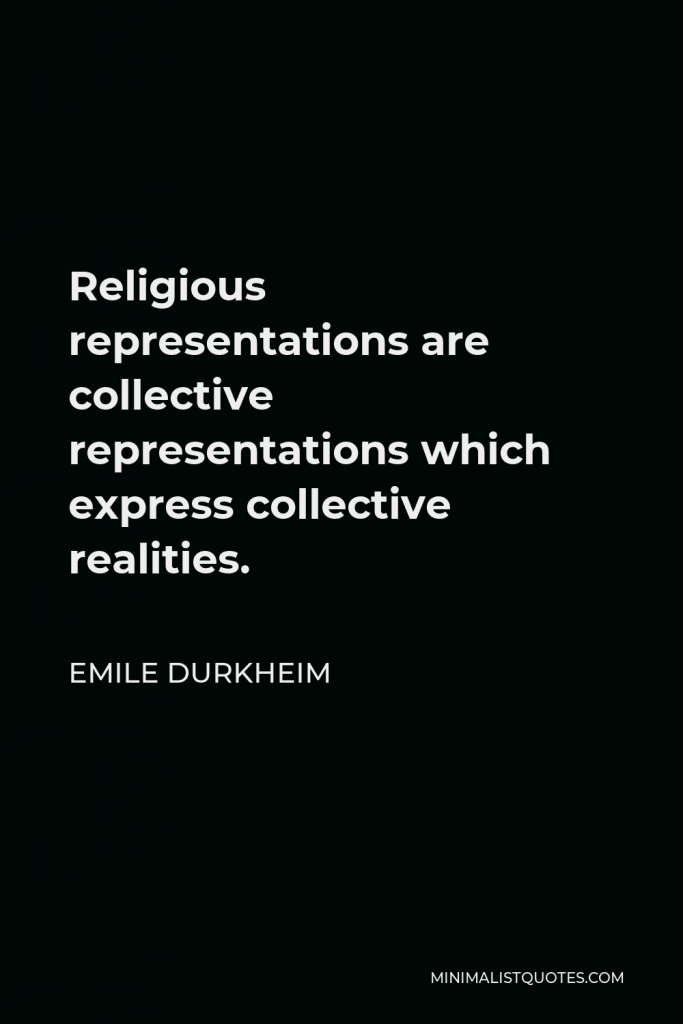

Religious representations are collective representations which express collective realities.
EMILE DURKHEIM -







Men have been obliged to make for themselves a notion of what religion is, long before the science of religions started its methodical comparisons.
EMILE DURKHEIM -





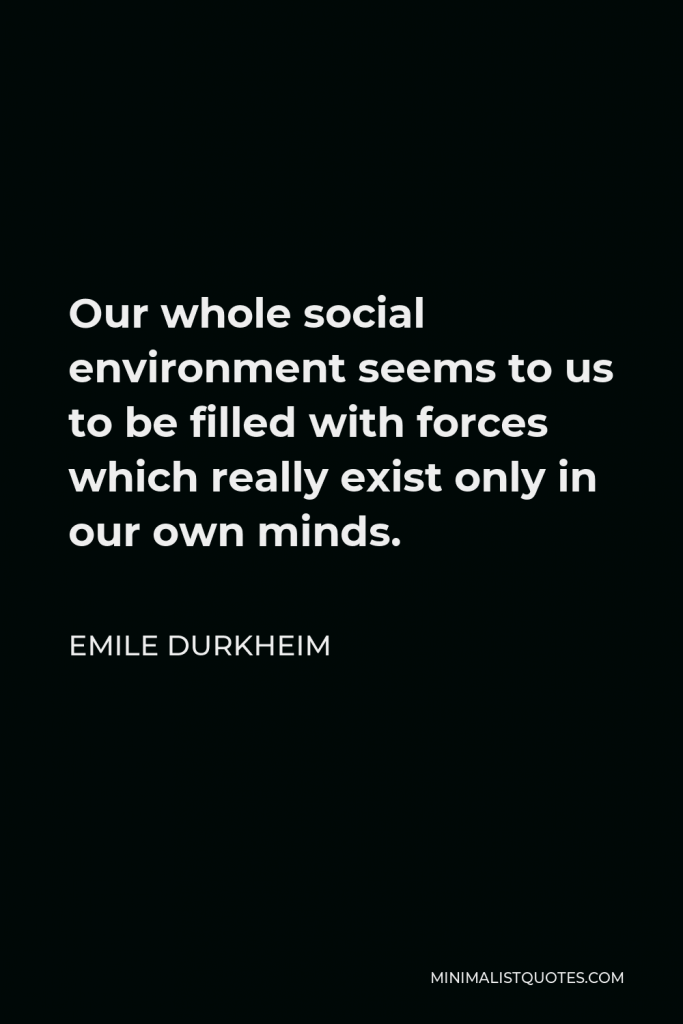

Our whole social environment seems to us to be filled with forces which really exist only in our own minds.
EMILE DURKHEIM -





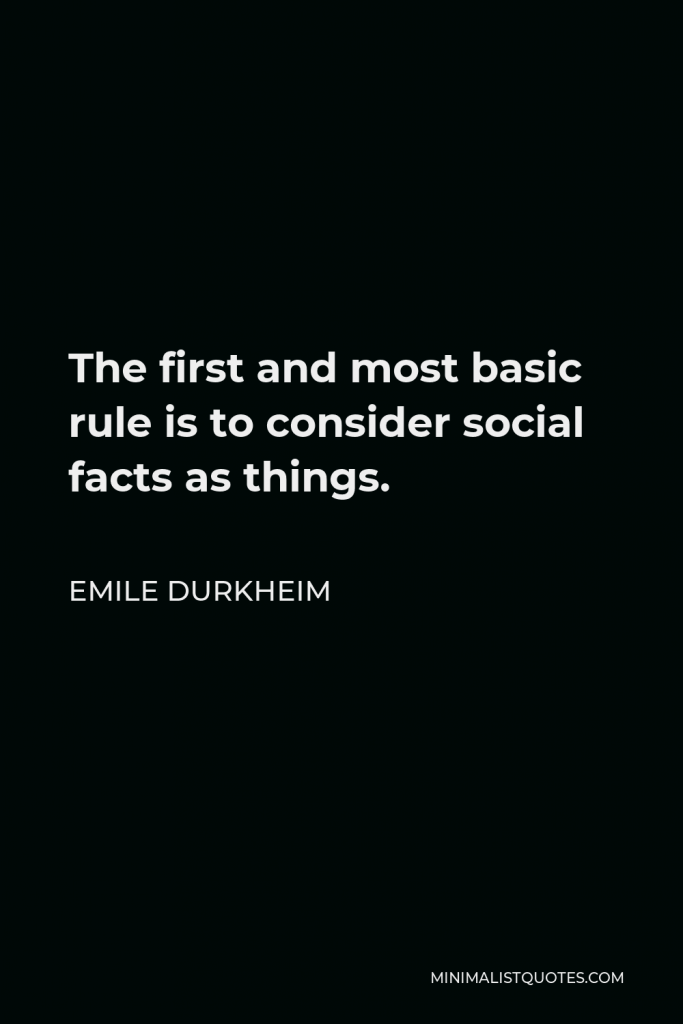

The first and most basic rule is to consider social facts as things.
EMILE DURKHEIM -







Man is only a moral being because he lives in society, since morality consists in solidarity with the group, and varies according to that solidarity. Cause all social life to vanish, and moral life would vanish at the same time, having no object to cling to.
EMILE DURKHEIM -





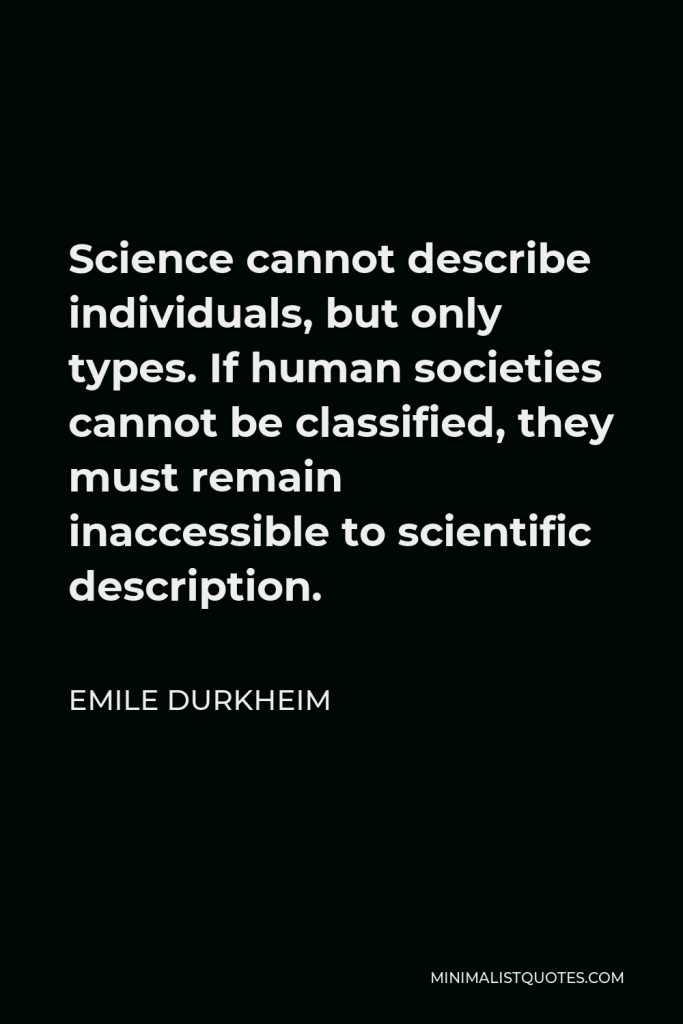

Science cannot describe individuals, but only types. If human societies cannot be classified, they must remain inaccessible to scientific description.
EMILE DURKHEIM -







An act cannot be defined by the end sought by the actor, for an identical system of behaviour may be adjustable to too many different ends without altering its nature.
EMILE DURKHEIM
